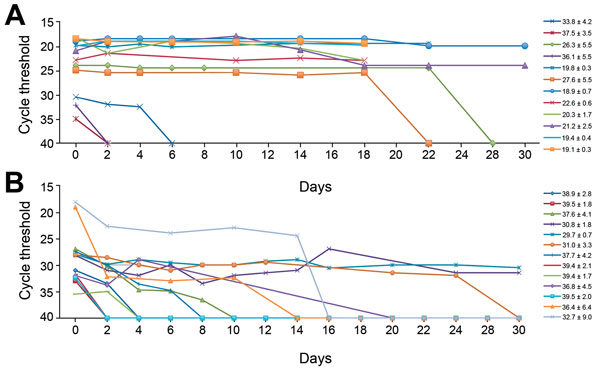Volume 22, Number 2—February 2016
Dispatch
Ebola Virus RNA Stability in Human Blood and Urine in West Africa’s Environmental Conditions
Figure

Figure. Stability of Ebola virus RNA in A) EDTA plasma and B) urine samples from patients in Guinea, as measured by real-time reverse transcription PCR. EDTA plasma and urine were processed immediately after receipt at a laboratory and left at room temperature (22°C–29°C; 50%–80% relative humidity) for various periods before the PCR analysis. Average cycle threshold values ± SD for individual samples are shown.
Page created: January 15, 2016
Page updated: January 15, 2016
Page reviewed: January 15, 2016
The conclusions, findings, and opinions expressed by authors contributing to this journal do not necessarily reflect the official position of the U.S. Department of Health and Human Services, the Public Health Service, the Centers for Disease Control and Prevention, or the authors' affiliated institutions. Use of trade names is for identification only and does not imply endorsement by any of the groups named above.